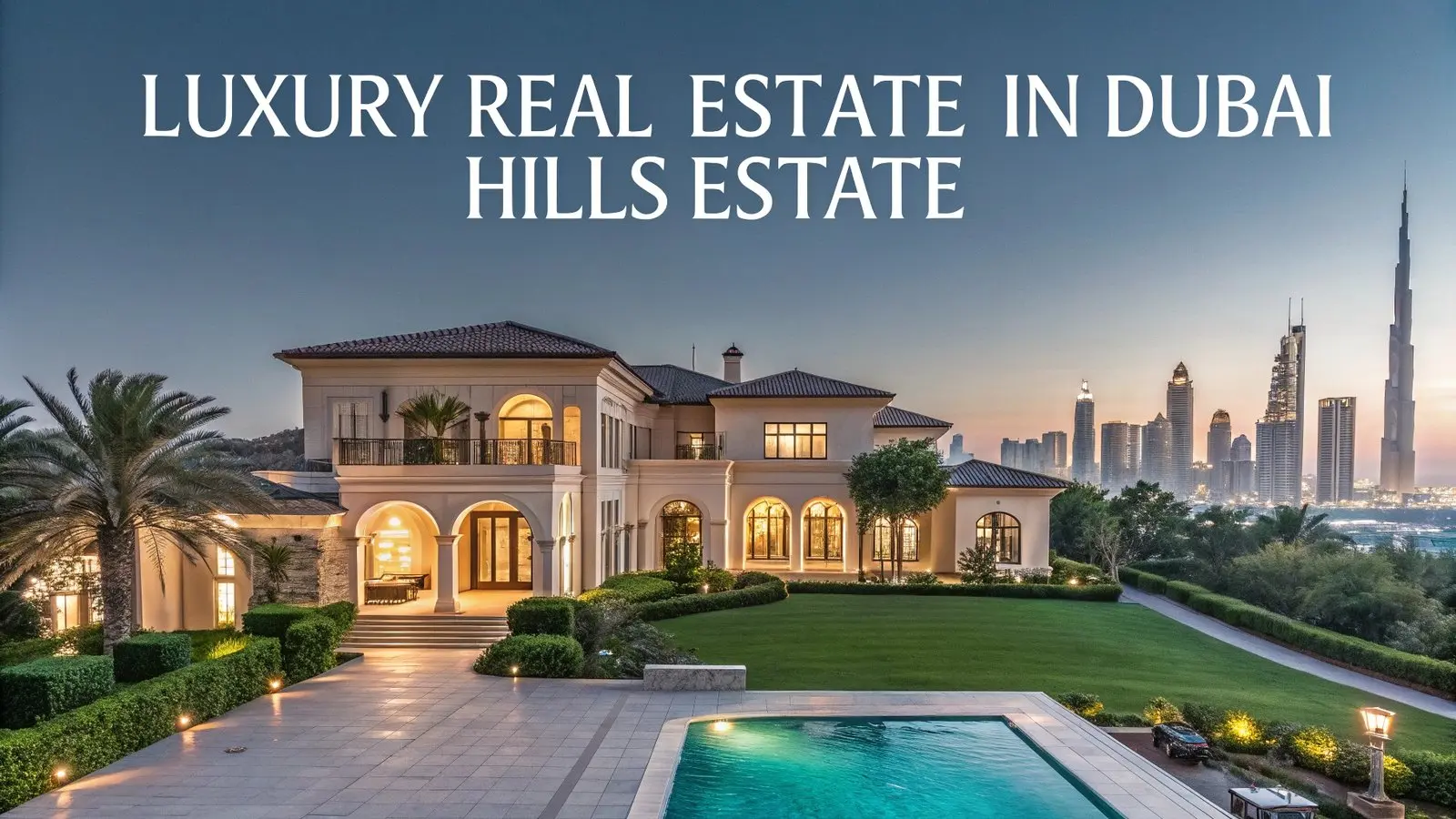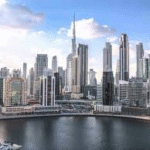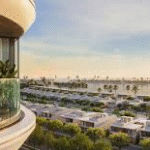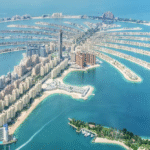Now Reading: Dubai Hills Estate: 5 Tax-Smart Ways to Maximize ROI in Villas in 2025
-
01
Dubai Hills Estate: 5 Tax-Smart Ways to Maximize ROI in Villas in 2025
Dubai Hills Estate: 5 Tax-Smart Ways to Maximize ROI in Villas in 2025

Table of Contents
Dubai Hills Estate, a master-planned community by Emaar Properties, is a top investment destination for U.S. buyers seeking luxury villas, offering a tax-free environment with no personal income tax, capital gains tax, or annual property taxes, ensuring 100% retention of rental income and resale profits. This contrasts with U.S. markets, where taxes reduce returns by 15-30%.
The UAE dirham’s peg to the U.S. dollar eliminates currency risk, and the Golden Visa, granting 10-year residency for investments of AED 2 million ($545,000) or AED 1.5 million ($408,000) for green projects, enhances appeal.
In 2025, Dubai’s real estate market thrives, with H1 transactions reaching AED 326.7 billion ($89 billion) across 91,897 sales, up 23% year-on-year, per Espace Real Estate. Dubai Hills Estate villas yield 6-8% and show 15-20% price growth projected by 2028, per Knight Frank’s 2024 Wealth Report. This article outlines five tax-smart strategies to maximize ROI in Dubai Hills Estate villas in 2025.
1. Leverage Zero-Rated VAT on First Sales
The first sale of residential villas within three years of completion is zero-rated for VAT, saving 5% on purchase costs, per Federal Decree-Law No. 8 of 2017. For a $1.36 million (AED 5 million) villa in Dubai Hills Estate (6-8% yields), this saves $68,000.
Invest in off-plan projects like Parkwood by Emaar (AED 3 million-$10 million, $816,000-$2.72 million, completion Q2 2025) to avoid VAT, preserving tax-free rental income of $48,960-$81,600. Verify Emaar’s Oqood system compliance to prevent a 5% VAT charge ($40,800-$136,000). U.S. investors deduct depreciation ($29,673-$99,091) and management fees ($3,917-$6,528) on IRS Schedule E, saving $6,718-$38,013 at 20-37% tax rates, boosting ROI.
Investment Strategy: Prioritize off-plan villas from reputable developers like Emaar to secure VAT exemptions and maximize tax-free returns.
2. Utilize Golden Visa Residency Cost Savings
The 2025 Golden Visa threshold for green-certified villas drops to AED 1.5 million ($408,000), saving residency costs ($3,000-$5,000 annually), per UAE Government updates. This applies to eco-friendly projects like Maple at Dubai Hills Estate (AED 3 million, $816,000, 6-7% yields).
Invest in green-certified villas to secure residency and zero-rated VAT ($40,800 savings). U.S. investors deduct depreciation ($29,673) and management fees ($4,896-$5,712), saving $6,914-$12,987 at 20-37% tax rates. Annual savings ($9,914-$18,987) enhance tax-free returns of $48,960-$57,120, increasing ROI for family-oriented buyers.
Investment Strategy: Target green-certified villas to combine residency benefits with tax savings, ensuring compliance with Dubai’s sustainability standards.
3. Optimize Short-Term Rentals for VAT Exemptions
Short-term rentals (e.g., Airbnb) registered as residential are VAT-exempt, saving 5% on rental income, per Federal Decree-Law No. 8 of 2017. For a Dubai Hills Estate villa generating $60,000-$100,000 annually, this saves $3,000-$5,000.
Target high-demand villas like Sidra Villas (AED 4 million, $1.09 million, 7-10% short-term rental yields) to maximize tax-free returns of $76,300-$109,000, per Savills 2024 data. Ensure RERA registration as residential to secure VAT exemptions. U.S. investors deduct management fees ($9,600-$16,000), saving $1,920-$5,920 at 20-37% tax rates, enhancing ROI.
Investment Strategy: Use platforms like Smarthost for Airbnb management to optimize occupancy and secure VAT exemptions, leveraging Dubai’s 18% tourism growth in 2025.
4. Restructure Ownership via Gift Transfers
The 2025 DLD gift transfer fee reduction to 0.125% saves $77,250 on a $2 million villa transfer (from $80,000), per Taylor Wessing, enabling restructuring to individual ownership to avoid 9% UAE corporate tax.
Transfer villas like Park Heights (AED 5 million, $1.36 million, 6-7% yields) to individual ownership, avoiding corporate tax ($7,344-$8,568 on $81,600-$95,200 rental income). U.S. investors report transfers on IRS Form 709, avoiding penalties up to 35% ($476,000). Deduct depreciation ($49,455), saving $9,891-$18,298 at 20-37% tax rates, supporting tax-free returns and higher ROI.
Investment Strategy: Restructure ownership to individuals via gift transfers, ensuring compliance with DLD regulations to maximize tax savings.
5. Deduct Mortgage Interest and Capital Improvements
Mortgage interest and capital improvements (e.g., smart home systems, $27,250-$54,500 for a $1.36 million villa) are deductible on IRS Schedule E. For a $1.36 million loan at 4% interest, annual payments are $54,400, fully deductible, per IRS Publication 936. Improvements depreciate over 27.5 years ($991-$1,982 annually), per IRS Publication 527.
For a villa like Golf Place (AED 7 million, $1.91 million, 6-7% yields), deduct $54,400 interest and $1,982 improvements, saving $11,276-$20,862 at 20-37% tax rates. This supports tax-free returns of $114,660-$133,770. Negotiate DLD fee waivers ($76,400) to offset initial costs (4% DLD fee, $76,400; 2% broker fee, $38,200).
Investment Strategy: Finance purchases with UAE bank loans and upgrade villas with smart systems to boost rental rates by 7-12% ($8,026-$16,052 annually), maximizing ROI.
U.S. Tax Compliance Considerations
Dubai Hills Estate’s tax-free market outperforms U.S. cities like New York (2-4% yields). A $1.36 million villa yielding 7% generates $95,200 tax-free annually, versus $66,640-$79,416 after U.S. taxes. Report rental income on Schedule E, deducting depreciation ($49,455), maintenance ($3,000-$6,000), management fees ($6,528-$7,616), mortgage interest ($54,400), and capital improvements.
Foreign assets over $50,000 (single filers) or $100,000 (joint filers) require Form 8938, and accounts over $10,000 need an FBAR, with non-compliance risking penalties up to $100,000. The 4% DLD fee ($54,400) isn’t deductible. Consult a tax professional to optimize deductions.
Risks and Mitigation Strategies
Dubai’s market is robust, with AED 761 billion in 2024 transactions and a projected 5-8% price increase in 2025, per fäm Properties. Dubai Hills Estate risks include oversupply (182,000 units by 2026), market volatility, and off-plan delays.
Mitigate by selecting Emaar Properties, verifying escrow compliance under the 2025 Oqood system, and targeting villas near Dubai Hills Mall and golf courses for high demand. Confirm VAT exemptions and proof of funds compliance to avoid fines up to AED 500,000.
Why Dubai Hills Estate in 2025?
Dubai’s Economic Agenda D33 and 25 million projected tourists in 2025 drive demand in Dubai Hills Estate, with off-plan sales up 30% in 2024 to AED 334.1 billion, per fäm Properties. Yields of 6-8% and zero personal taxes outpace global hubs like London (3-4%) or New York (2-3%), per CBRE’s 2024 Middle East Real Estate Market Outlook.
These five tax-smart strategies zero-rated VAT, Golden Visa savings, VAT-exempt rentals, gift transfer reductions, and deductions for interest and improvements maximize ROI for U.S. investors in projects like Parkwood, Maple, Sidra Villas, Park Heights, and Golf Place, per triumphproperties.ae and aysdevelopers.ae.
In conclusion, Dubai Hills Estate’s 2025 real estate market offers U.S. investors tax-efficient opportunities through strategic UAE and IRS tax planning. By leveraging these strategies, partnering with Emaar, and ensuring compliance, investors can maximize ROI in this prestigious, high-yield community. dubai hills state
read more: Meydan Developments: 6 New Projects Offering Strategic Tax Relief in 2025






















